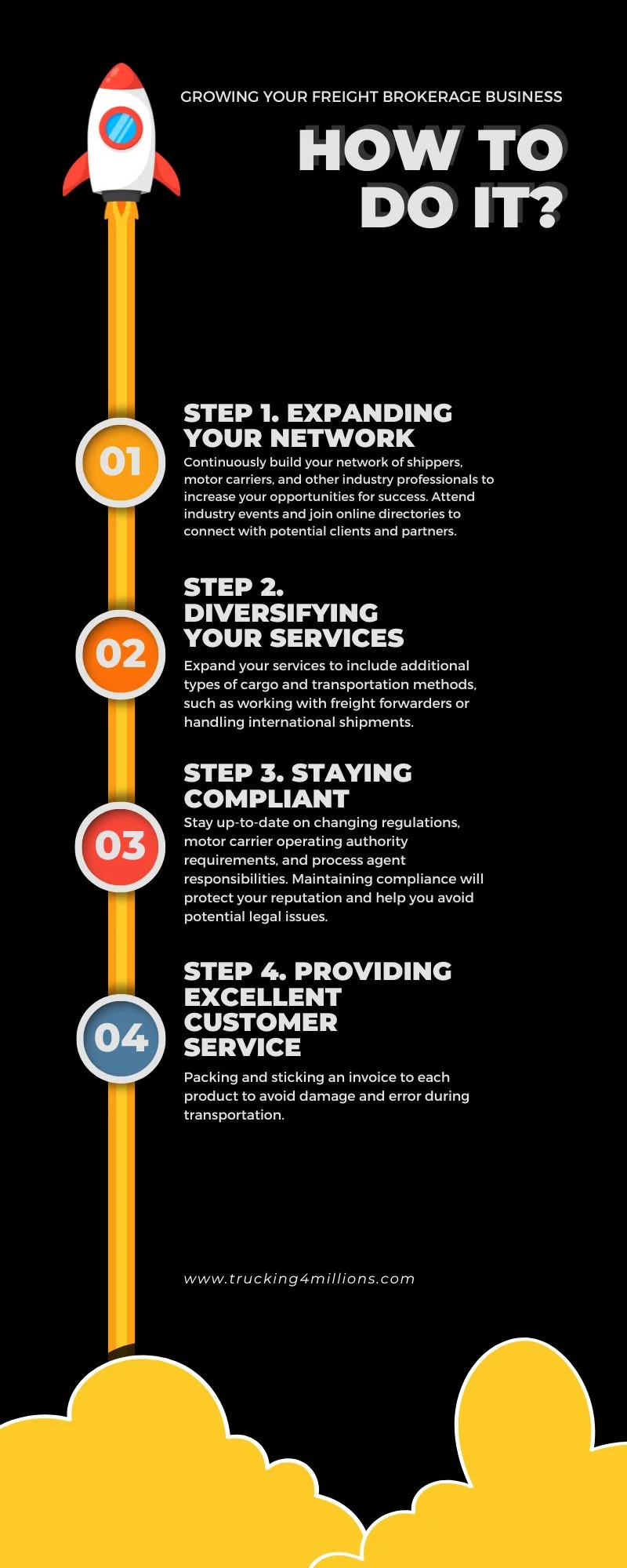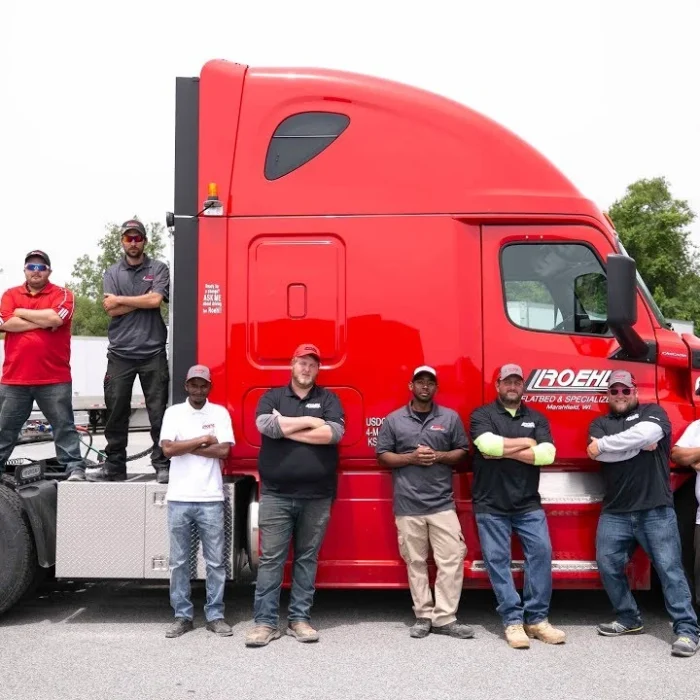The demand for freight brokers has grown significantly in the transportation industry. If you’re interested in learning how to become a freight broker, this comprehensive guide will provide the information you need to start your own successful freight broker business. We will cover the essential steps, skills, and knowledge required for this exciting career.
What is a Freight Broker?
A freight broker serves as an intermediary between shippers and carriers in the transportation industry. These professionals connect shippers with trucking companies and other carriers to transport goods. A successful freight broker ensures the entire delivery process runs smoothly and that the needs of both shippers and carriers are met.

Benefits of Becoming a Freight Broker
Financial Rewards
Working as a freight broker offers the potential for significant income. As the shipping industry grows, so do the opportunities for increased revenue in freight brokering.
Independence
By becoming a freight broker, you can run your own business or even start a freight brokerage company. This allows you the freedom to set your own schedule and determine your work-life balance.
Low Startup Costs
Starting a freight brokerage business doesn’t require a large upfront investment. With basic office equipment and a small workspace, you can begin building your freight broker company.
Expanding Industry
With the continuous growth of e-commerce and global trade, the demand for freight brokers will only continue to increase, ensuring a stable and rewarding career in the trucking industry.

7 Steps to Become a Freight Broker
1.Education and Experience
Although no specific degree is required, taking courses in supply chain management, logistics, or a related field can be beneficial. Freight broker training schools and industry experience can also provide valuable insight and connections.
2.Licensing and Registration
To become a licensed freight broker, you must obtain a freight broker license (also known as broker authority) from the Federal Motor Carrier Safety Administration (FMCSA). This involves completing an application, paying a fee, and appointing a process agent in each state where you plan to operate.
3.Obtaining a Surety Bond
Freight brokers are required to have a surety bond or trust fund in the amount of $75,000 to protect shippers and carriers in case of default or failure to pay. You can obtain a freight broker bond through a bonding company or an insurance provider.
4.Insurance Coverage
Freight brokers should obtain general liability and contingent cargo insurance to protect their business from potential legal issues.
5.Develop a Business Plan
Create a thorough business plan that outlines your goals, target market, and strategies for success. This plan will serve as a roadmap for your freight brokerage business and help guide your decisions as you grow.
6.Building Relationships with Shippers and Carriers
Establishing strong relationships with shipping companies and truck drivers is crucial for the success of your freight brokerage business. Networking and providing excellent customer service will help you build a solid reputation in the freight industry.
7.Marketing Your Services
Develop a marketing strategy to promote your freight brokerage services. Utilize online platforms, such as social media and industry-specific websites, as well as traditional methods like attending trade shows and networking events.

Skills for Success as a Freight Broker
Communication: Effective communication is essential for negotiating rates, resolving issues, and building relationships with shippers and carriers.
Problem-solving: Freight brokers must be able to quickly find solutions to challenges that may arise during the transportation process.
Organization: Managing multiple shipments simultaneously requires strong organizational skills and attention to detail.
Salesmanship: Being able to sell your services and negotiate rates is crucial for the success of your brokerage business.
Industry knowledge: Staying up-to-date on freight broker industry trends and regulations is important to ensure compliance and stay competitive.

Setting Up Your Freight Broker Business
Choosing a Business Structure
Determine the best business structure for your freight brokerage company, such as a sole proprietorship, limited liability company (LLC), or corporation. Consult with a business attorney to understand the advantages and disadvantages of each option.
Registering Your Business
Register your freight broker business with your local business license department and obtain any necessary permits. Additionally, you’ll need to apply for a tax identification number from the IRS.
Selecting a Location
Consider whether you want to work from home or establish an office for your freight brokerage business. Ensure your chosen workspace has the necessary equipment, such as a computer, phone, and internet connection.
Investing in Freight Brokering Software
Freight brokering software can help streamline your operations, manage shipments, and track cash flow. Research available options to find the best fit for your business needs.
Building a Team
As your freight broker business grows, consider hiring additional staff or working with freight agents to support your operations. Training and mentoring new freight brokers can help ensure the continued success of your company.
Below is an expanded list of the top 10 highest paying trucking companies with approximate yearly salaries and information on work hours. Keep in mind that work hours may vary depending on factors such as route, freight type, and company policies.
Walmart Transportation
- Average yearly salary: $75,000 to $90,000
- Work hours: Walmart drivers typically work full-time, with regional and local routes that allow for regular home time. The company aims to provide predictable schedules and consistent hours.
Sysco
- Average yearly salary: $65,000 to $85,000
- Work hours: Sysco drivers generally work full-time and have local or regional routes, which means they can expect regular home time. Some positions may require early morning starts or occasional weekend work.
Old Dominion Freight Line
- Average yearly salary: $60,000 to $80,000
- Work hours: Old Dominion drivers usually work full-time, with various shifts available, including day and night. Many positions offer regular home time, although some regional or long-haul routes may require longer periods away from home.
UPS
- Average yearly salary: $60,000 to $75,000
- Work hours: UPS drivers typically work full-time, with shifts that can vary based on route and package volume. While many drivers enjoy regular home time, peak seasons may require additional hours or weekend work.
FedEx
- Average yearly salary: $55,000 to $75,000
- Work hours: FedEx drivers generally work full-time, with varying shifts and routes. Many positions offer regular home time, but long-haul or regional routes may require extended periods away from home.
YRC Worldwide
- Average yearly salary: $55,000 to $70,000
- Work hours: YRC Worldwide drivers often work full-time, with different shifts and routes available. Local and regional positions typically offer regular home time, while long-haul drivers may spend more extended periods on the road.
J.B. Hunt Transport Services
- Average yearly salary: $50,000 to $80,000
- Work hours: J.B. Hunt offers a variety of driving positions, with work hours that can vary based on route and job type. Many positions provide regular home time, but some regional or long-haul roles may require longer periods away from home.
XPO Logistics
- Average yearly salary: $55,000 to $75,000
- Work hours: XPO Logistics drivers typically work full-time, with a range of shifts and routes available. Local and regional positions often allow for regular home time, while long-haul drivers may spend more time on the road.
Schneider National
- Average yearly salary: $50,000 to $75,000
- Work hours: Schneider National drivers usually work full-time, with various shifts and routes to choose from. The company offers positions with regular home time, as well as regional and long-haul opportunities that may involve longer periods away from home.
Con-way Freight
- Average yearly salary: $50,000 to $70,000 (before acquisition by XPO Logistics)
- Work hours: Before the acquisition by XPO Logistics, Con-way Freight drivers generally worked full-time, with a variety of shifts and routes available. Many positions offered regular home time, although some regional or long-haul roles required extended periods on the road.
Growing Your Freight Brokerage Business

What We Found
Becoming a freight broker can be a highly rewarding career, offering financial success and independence in a growing industry. By following the steps outlined in this article, you will be well on your way to building a successful freight brokerage business. Remember to prioritize relationship-building, continuously develop your skills, and stay informed about industry trends to excel in this exciting field.
Common Questions
What are the key differences between a freight broker and a freight agent?
A freight agent typically works under a licensed freight broker and does not require their own broker license or surety bond. Freight brokers, on the other hand, operate their own business and must obtain the necessary licenses and bonds.
What is the role of a process agent in the freight brokerage business?
A process agent serves as a representative for a freight broker in each state where they operate, accepting legal documents on behalf of the broker.
How do freight brokers find quality carriers to work with?
Freight brokers often rely on load boards, industry connections, and online directories to find reliable motor carriers and trucking companies to work with.
How do freight brokers make money?
Freight brokers earn money by charging a fee or commission for connecting shippers with carriers and facilitating the transportation of goods. This fee is typically a percentage of the overall shipping cost.
What types of insurance do freight brokers need?
Freight brokers should obtain general liability insurance, contingent cargo insurance, and a surety bond or trust fund to protect their business and clients.







